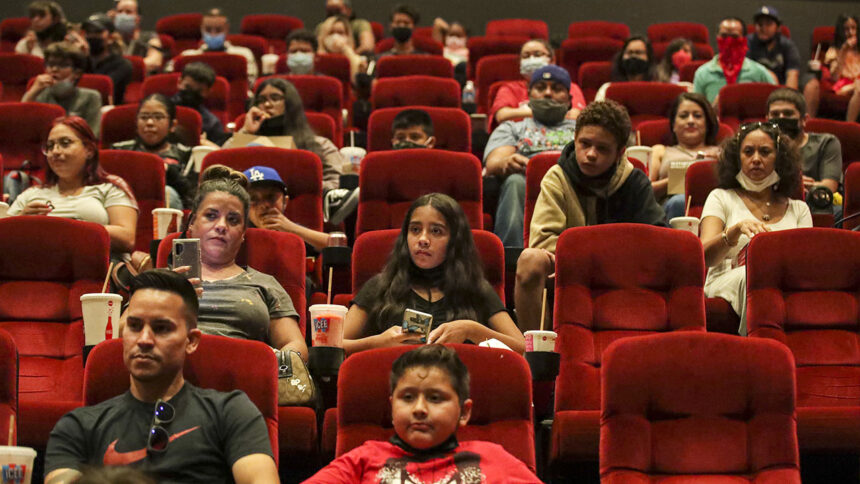The age-old question—are younger generations abandoning movie theaters?—has been definitively answered, thanks to the National Association of Theatre Owners (NATO). Their recent report, “The Strength of Theatrical Moviegoing,” paints a picture that is both surprising and reassuring for the film industry: Gen Z, often caricatured as screen-addicted homebodies, is leading the charge back to cinemas.
The Resurgence of Theatrical Moviegoing
NATO's data is compelling. Among 10-24 year-olds, attending a movie on opening weekend is the top leisure activity, outranking other pursuits regardless of time or cost constraints. This preference places Gen Z at the forefront of a resurgence in theatrical moviegoing, a stark contrast to the belief that streaming has overtaken their entertainment habits.
The statistics underline this trend: 90% of Gen Z females and 89% of males attended at least one movie in theaters in 2024. While males placed video games higher on their list of favorite pastimes, movies remain a close contender, suggesting that theaters are still a cultural touchstone for this generation.
A Promising Outlook
The report forecasts even brighter days ahead for theaters. In 2025, the number of films releasing in over 2,000 locations is set to climb from 95 to 110. Additionally, loyalty programs have seen a 12% increase in new subscriptions over the past year, signaling sustained interest. Theater owners are betting big on this momentum, committing over $2.2 billion in upgrades to sound, projection, and overall viewing experiences over the next three years.
These investments are more than just technical—they're symbolic of the enduring magic of communal storytelling. Theatres offer something no home screen can replicate: a shared, visceral connection to stories that transcend the screen.
The Gen Z Paradox
Why is Gen Z embracing theaters when so much entertainment is available at their fingertips? The answer lies in the experience. The theater is more than just a place to watch movies; it's a sanctuary of focus, a collective gasp during a climactic scene, and a shared laugh reverberating through a packed house.
Movies like Barbie and Oppenheimer exemplify this appeal. These films weren't just box-office hits; they were cultural events that begged to be seen on the largest screen possible. Gen Z's participation in such phenomena speaks to their desire for meaningful, communal entertainment experiences.
The NATO report offers more than statistics; it tells a story of revival, community, and cultural engagement. Gen Z's love for theatrical moviegoing reminds us that while technology evolves, the human need for shared storytelling remains timeless.
As theaters continue to innovate and adapt, they may find their best allies in the very generation many feared they'd lost.
My Impressions:
This report feels like a love letter to the resilience of cinemas. Gen Z's enthusiasm is a testament to the enduring power of movies, even in an era dominated by digital convenience. As a film lover, it's heartening to see theaters not just surviving but thriving, fueled by a generation that values the magic of the big screen.
That said, the road ahead isn't without challenges. Sustained innovation and diverse programming will be key to keeping this momentum alive. Yet, with theaters now doubling down on investments, the future feels optimistic.
Do you think theaters will maintain their cultural relevance in the face of streaming and gaming? Or are we witnessing a temporary resurgence? Share your thoughts below!












